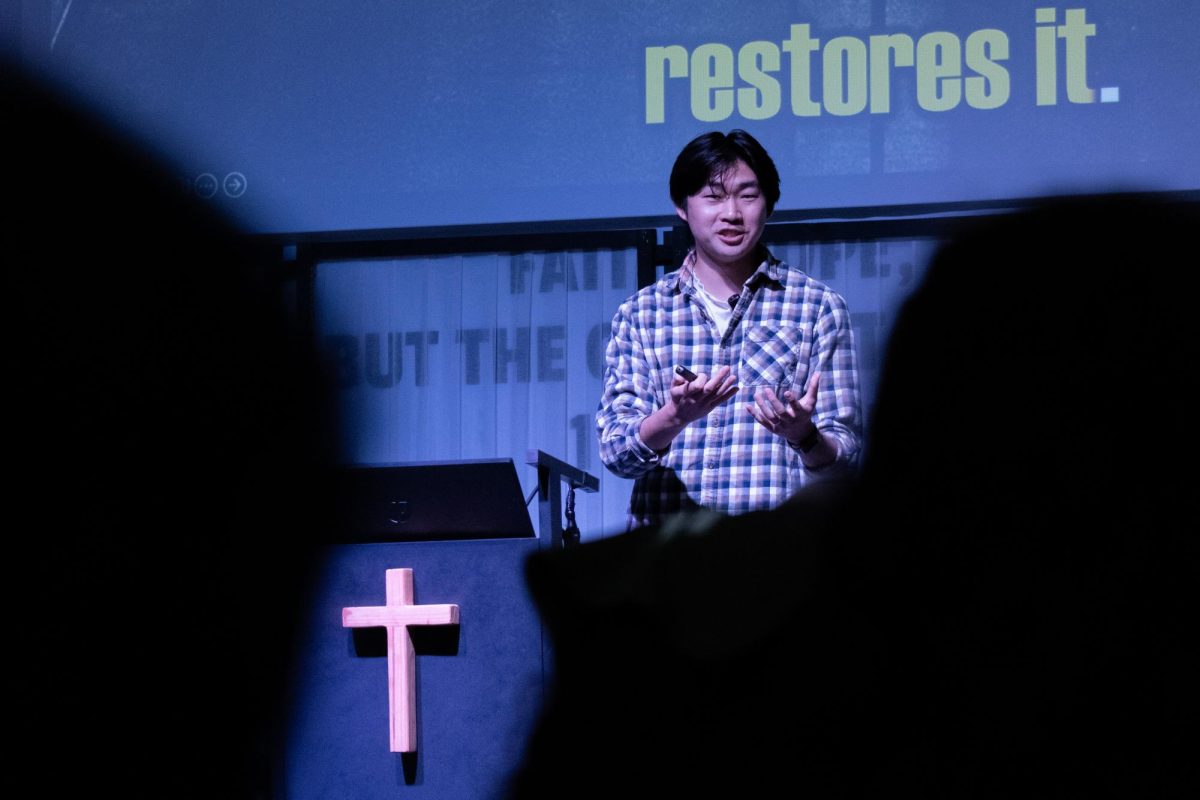The hazing incident which resulted in the halt to all pledge activities for sororities and fraternities was brought to the university’s attention last Friday, Dr. William Watkins, vice president of student affairs and dean of students said.
A pledge of the Pi Kappa Alpha Zeta Omicron chapter at CSUN came forward to an administrator and reported certain activities as part of the pledging process for the fraternity, Watkins said in a telephone interview Friday.
“We immediately imposed an interim suspension on any further pledging activities to make sure we didn’t have any more concerning incidents there,” Watkins said. “As the week went along and we talked with more pledges, we next then invoked an interim suspension so that the chapter could not function as a chapter here.”
Watkins said the decision to stop all current pledging activities was an attempt to engage students in the revision of pledging processes, especially with the incident emerging shortly after the new training system for sororities and fraternities put in place following the death of Armando Villa in a hazing incident three months ago.
“That (decision) was to do something that would cause the entire system to become collectively invested in trying to change the practices around pledging,” Watkins said. “That’s essentially the thinking that went into this.”
The latest allegation of hazing comes after the death of Villa, a 19-year-old CSUN student who died as a result of hazing during a hiking trip in the Angeles National Forest July 1. The Pi Kappa Phi Zeta Mu chapter at CSUN was voluntarily surrendered by the national fraternity following an investigation by a private firm for CSUN.
Douglas Aberle, attorney for Armando Villa’s family, released a statement in reaction to CSUN’s actions to halt all pledge activities.
“We are pleased that the university is finally taking an active role in addressing and controlling the behavior of those under its supervision. Unfortunately it has come too late for Armando. We hope universities across the country will pay close attention to what has gone on and take similar action.”
CSUN Department of Police Services (PD) chief Anne Glavin confirmed that the investigation into the possible hazing incident is solely a CSUN PD matter, Christina Villalobos, CSUN PD public information officer said.
Justin D. True, director of communications and marketing at the Pi Kappa Alpha national headquarters, stated the international fraternity is cooperating with the university through the investigation.
Although the university has not made a decision for additional investigative support, Watkins said CSUN hasn’t decided to begin a private investigation at this time. Watkins made it clear however that this investigation involves a different set of circumstances from the Villa case, in terms of how the situations evolved with Villa’s death and this incident that “doesn’t involve the same thing.”
“Since that particular unfortunate circumstance of Armando’s passing, we introduced some changes that we hope change things and ensure that we not have another report of this kind,” Watkins said. “While those changes were good in the sense that it educated the students about what they should do if they face hazing, it obviously did not stamp it out completely. I think we deal with everything in a developmental way, this was the next step in the journey to try to help change culture.”
Members of the greek system at CSUN have expressed their disappointment in the decision.
Meaghan Manos, senior psychology major and member of the Alpha Phi sorority, said the news was disappointing, especially for those in their last year in the greek system.
“I think that it’s a shame that there’s hazing at CSUN, because it’s not present in every organization at CSUN,” Manos said.
The punishment should have been focused on the individual chapter, she said.
“I think that they need to be held accountable, but it shouldn’t’ reflect on the entire greek system,” Manos said.
“We think that there are probably many chapters that do a marvelous job of recruiting, and pleading and inducting their students,” Watkins said. “My hope is that it will be good practices that are in place will be shared with those chapters that perhaps need assistance in this area, so that all of our chapters can function effectively.”
The Matador Involvement center has been in conversations with chapters calling for assistance in interpreting the new policies required of them, Watkins said. Watkins, President Dianne Harrison and their staff will spend time next week to address the Greek system “more broadly.”
An email from Jamison Keller, activities coordinator, to greek leaders stated Harrison will speak to the greek community in a meeting tentatively scheduled for Oct. 31 at the Northridge room at the University Student Union from 4 p.m. to 5 p.m.
Pete Camarillo, Michael Arvizu and Crystal Lambert contributed to this report.











